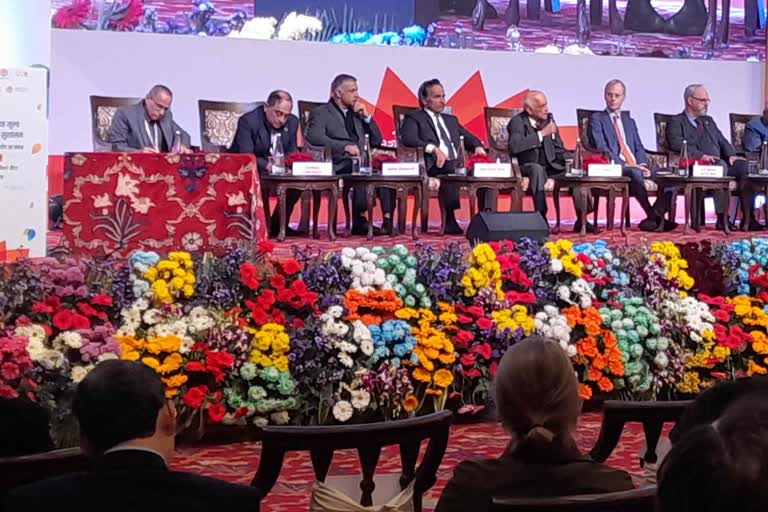Bhopal: Bangladesh is rehabilitating more than 1 million Rohingya in the country and has sought help from India and the United Nations to deport the Rohingyas back to Myanmar, Devopriya Bhattacharya, a fellow of the Center for Policy Dialogue, Government of Bangladesh said at the two-day long 'Think-20' meeting under the G20 in Bhopal.
Speaking at the concluding day of the meeting on Tuesday, Bhattacharya said that Bangladesh is rehabilitating 1 million Rohingyas. The figure is increasing with each passing day, she said. Bhattacharya said that Rohingyas are being provided all facilities along with education and health. She however added that despite the best efforts by the Bangladesh government, the Rohingya community is struggling with basic facilities.
Bhattacharya said that Bangladesh seeks help from India and the United Nations for the deportation of the Rohingyas living in the country. She also said that Bangladesh wants help from other countries in this regard. “Rohingyas should go back to Myanmar, but till now we have not received any help from any country,” she said.
She expressed hope that other countries will provide the necessary support to deport the Rohingyas. She also appealed for cooperation from countries like India, China, and Russia besides the United Nations. Meanwhile, the two-day-long Think-20 concluded on Tuesday. Hundreds of delegates from 22 countries including India participated in the meeting.
A two-day, Think20 (T20) conference was held on 'Global Governance with Life, Values and Wellbeing - Fostering Cooperation in Frameworks, Finance and Technology' organized by Research and Information Systems (RIS) for Developing Countries and Atal Bihari Vajpayee Institute of Good Governance and Policy Analysis (AIGGPA), an autonomous institute of the Government of Madhya Pradesh, in collaboration with NITI Aayog (MPNITI) and other partners.
The conference brought together T20 Task Force members, academics, subject matter experts, policymakers, diplomats, UNICEF and other international organizations, the private sector, foundations, and civil society. A joint RIS-UNICEF panel on 'Investing in Children' and international experts presented policy recommendations to the G20.
The panel focuses on investing in child-centered policies which prioritize progressive universal child benefits, especially in the early years of childhood, maternity benefits and child care. The experts said that evidence shows that investing in the early years can foster cognitive capital to achieve the highest and most inclusive economic growth.
Sharing the outcomes of the two-day conference, Sachin Chaturvedi, Director General, RIS, said, “There is a need for a change in approach to development transformation that recognizes the role of women in development. Women's entrepreneurship should be promoted. Investment in children has not received that priority and attention.
To do this, we have prioritized child-specific issues to inform wider G20 deliberations, such as nutrition and quality education. Let us invest in children today for humanity's tomorrow”. The G20 vision of 'One Earth, One Family and One Future' is aimed to prioritize the brainpower or cognitive abilities of individuals and nations, said George Laria-Adjei, UNICEF Regional Director for South Asia.
“We know that investing in childhood and adolescence can be a powerful driver of inclusive economic growth. The world needs to advance cognitive development, which requires a new model for development. We know that this new model will emerge with India leading the G20,” he said.



